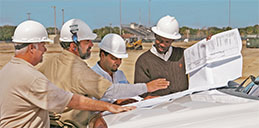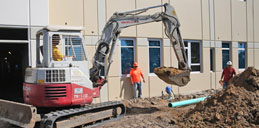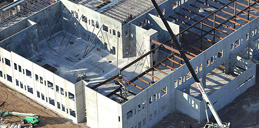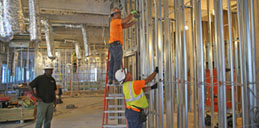Commercial Roofing Types
Choosing the right type of roofing for your commercial building can make or break the project. The roof protects the building and its occupants and contributes to energy efficiency, aesthetics, and long-term cost management. Commercial roofs come in various types, each with its pros and cons. Let’s explore the most common commercial roofing types and their advantages and potential drawbacks to help you make a better decision.
 Built-Up Roofing (BUR) Systems
Built-Up Roofing (BUR) Systems
Built-up roofing systems, or BUR, are among the oldest. They have multiple layers of asphalt and ply sheets topped with gravel or other materials.
Pros: BUR roofing’s multiple layers offer excellent protection against harsh weather, making it very durable. The layered design also minimizes leaks, and with proper maintenance, these roofs can last 20-30 years.
Cons: BUR roofs need more installation time than other options. They’re also heavier than other systems, which may require additional structural support. Finally, these roofs require regular maintenance to deal with loose gravel that could compromise its integrity.
Modified Bitumen Roofing
This roofing system is like BUR but uses a modified asphalt material reinforced with fiberglass or polyester for better performance.
Pros: Modified bitumen roofing is flexible and resists cracks. It also performs well in extreme temperatures, is easy to install, and withstands heavy foot traffic.
Cons: These roofs aren’t the most visually appealing option, and they have a shorter lifespan (15-20 years) than other materials on the list.
Metal Roofing
Metal roofs are made from steel, aluminum, or copper and are popular choices for commercial buildings.
Pros: Metal roofs are extremely durable and can last up to 50 years or more with minimal maintenance. They’re energy efficient, reduce cooling costs, and are often made with recycled materials.
Cons: Metal roofs cost more than other roofs and they can be noisy during the rain unless you soundproof them. They also require coatings to prevent rust and wear, especially in coastal areas.
Thermoplastic Roofing (TPO & PVC)
Thermoplastic roofing systems, including TOP (Thermoplastic Polyolefin and PVC (Polyvinyl Chloride), are single-ply membranes that provide lightweight and durable solutions.
Pros: TPO and PVC are reflective, which increases energy efficiency. They’re also resistant to chemicals, UV rays, and punctures and perform well in areas with temperature fluctuations.
Cons: High-quality TPO can be expensive, and lower-quality options may have durability issues. Besides the expense, they require skilled professionals to install them properly.
EDPM (Ethylene Propylene Diene Monomer) Roofing
EDPM is a synthetic rubber roofing membrane known for being versatile and affordable.
Pros: It’s one of the most cost-effective roofing options, perfect for projects on slim budgets. It performs well in extreme temperatures and harsh conditions. It’s easy and affordable to repair.
Cons: These roofs are typically only available in black or white, so they may not be the best choice if aesthetics are a concern. They’re also more susceptible to punctures than to other materials. Lastly, black EDPM absorbs heat, potentially increasing cooling costs.
Green Roofing
Green roofing is growing in popularity in commercial projects. These roofs feature vegetation and soil atop a waterproof membrane, making them ideal for eco-friendly builds and energy efficiency.
Pros: They improve air quality and reduce urban heat islands. They also offer excellent thermal performance, reducing energy costs. Many people love the natural aesthetics.
Cons: Installing and maintaining green roofs requires a significant investment, making them among the most expensive roofs. Because they’re alive, green roofs require regular care to maintain the vegetation and drainage. Finally, they can add significant weight to the building’s load structure.
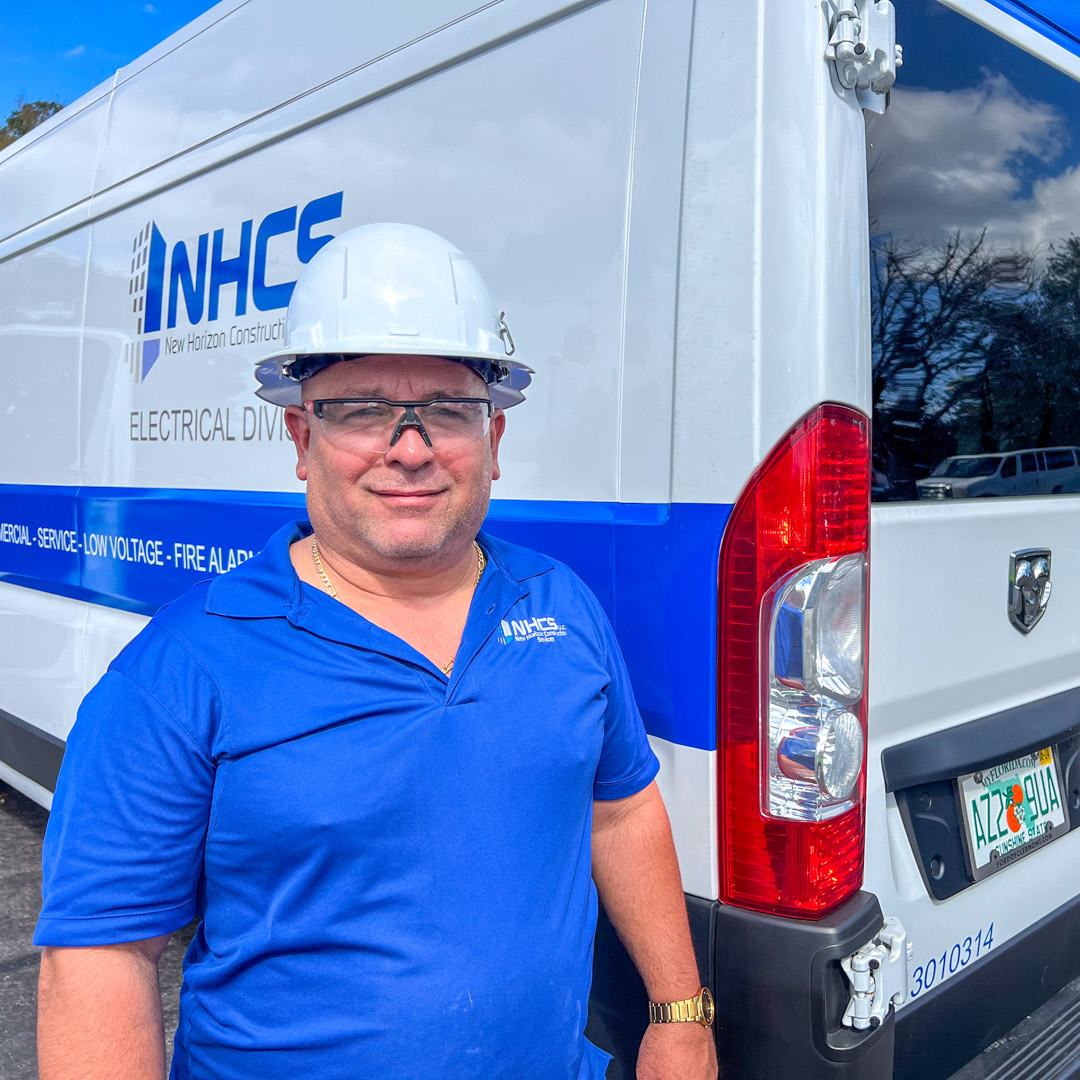
Selecting the right commercial roofing system depends on factors like your budget, climate, building use, and long-term maintenance goals. Built-up and modified bitumen roofing offer time-tested durability, while metal and thermoplastic options provide energy efficiency and longevity.
Green or SPF roofs are excellent choices for businesses prioritizing sustainability. Consult a professional roofing contractor to assess your specific needs and ensure a solution that balances functionality and cost-effectiveness.
Contact New Horizon Construction Services to discuss your next commercial building project.


